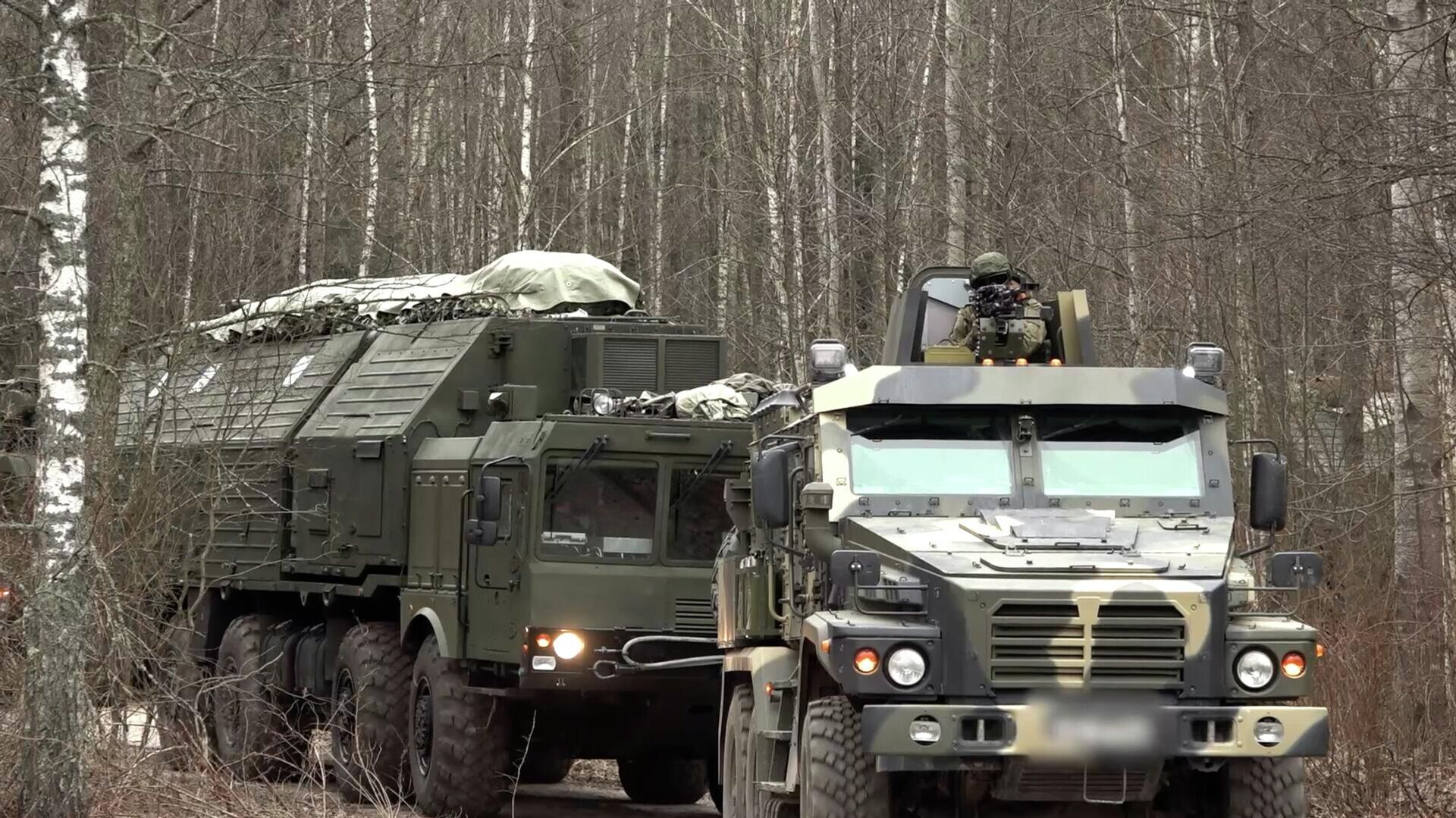
Baltic Intelligence Agencies Increasingly Worry About Threats From China in Addition to Russia
Baltic Intelligence Agencies Increasingly Worry About Threats From China in Addition to Russia
In mid-March, the State Security Service (VDD) of Latvia published its annual public report. “While the new coronavirus COVID-19 disease has for some time brought other priorities to the forefront of public safety, national security issues remain relevant,” said VDD Chief Normunds Mežviets (Vdd.gov.lv, March 17). Similar reports were issued earlier this year by the Estonian Foreign Intelligence Service (EFIS) (Valisluureamet.ee, February 12) and the State Security Department as well as the Second Investigative Department under the Lithuanian Ministry of National Defense (Vsd.lt, February 24). Crucially, while all three countries’ intelligence services once again highlighted threats from Russia, their annual reports additionally raised growing concerns about hostile Chinese activities.
The EFIS report clearly declares, “The only existential threat to Estonia’s sovereignty is a potential Russian military operation against the Baltic States. Compared to NATO [North Atlantic Treaty Organization] forces, the balance of power on the Baltic States’ axis is clearly tilted in favor of Russia. Even discounting [the heavily militarized Russian Baltic exclave of] Kaliningrad, Russia has absolute supremacy in terms of offensive equipment—tanks, fighter aircraft and rocket artillery” (News.err, February 12).
In turn, according to the Latvian VDD, Russian actions against NATO and the European Union remained high over the past year. As a result, counteracting Russia’s influential measures continued to set the agenda for VDD actions. According to its afore-cited March 2020 report, Russia continued to pose the greatest challenge to Latvia’s counter-intelligence efforts over the past year. These Russian threats originated not only from Russian territory itself but also, via proxies (such as surreptitiously Moscow-backed transborder criminal gangs), from a number of Commonwealth of Independent States (CIS) member countries. These Russian intelligence operations included not only efforts to penetrate or more closely monitor strategically important companies (such as those involved in constructing Rail Baltica) but also Latvian municipalities and cross-border initiatives (Delfi.lv, March 17).
For example, in 2019, the VDD identified several potentially threatening cross-border “cooperation” projects with local Russian entities. In two cases, Latvian municipalities planned to implement environmental cooperation projects with the Pskov regional administration and other municipalities in Russia, involving the installation of video surveillance cameras produced in Russia for monitoring natural resources and outdoor recreational sites in the area. However, as the report points out, these project would have included, inter alia, the retention of video surveillance data on Russian territory and the possibility of third parties to access the video surveillance footage remotely (Vdd.gov.lv, March 17). The VDD concludes that, at the tactical intelligence level, hostile foreign special services in Latvia were interested in information about NATO Enhanced Forward Presence (EFP) battlegroup personnel, their locations and capacities. Similarly, information was gathered on the material resources of the EFP battlegroup itself (Sargs.lv, March 17).
The Estonian intelligence report on incidents in 2019 expressed particular concern that Russian cyberattacks against the West “have gone unpunished” and will continue in 2020. “As long as the potential benefits outweigh the consequences, Russia is very likely to continue its use of cyber operations,” the report says. “Russia prefers to target states and institutions that have a low level of cyber security and possess sensitive information of another country due to membership in an international organization” (Estonianworld.com, February 14).
Meanwhile, thousands of Lithuanians took advantage last year of Russia’s visa-free regime with neighboring Kaliningrad region. The Lithuanian intelligence services suggest that this travel facilitation by Russia in fact assists in Moscow’s recruitment of local spies from Lithuania. The latest Lithuanian intelligence threats report warns that Russia receives information about arriving foreigners and then checks if those individuals possess valuable information or are vulnerable to recruitment. Particular attention is given to “former and active politicians, businessmen, law enforcement officers, military personnel, and journalists traveling to Russia,” according to the report (BNN, February 6).
As of last year, Lithuania continued importing Russian liquefied natural gas (LNG) from privately-owned gas producer Novatek. However, these imports through the port of Klaipeda pose a risk to the country’s energy independence, the intelligence report notes: “By increasing its trade turnover via Klaipeda Terminal, Novatek is playing a part in Russia’s long-term game to restore its dominant position in the regional gas market.” Novatek’s shareholders include Gennady Tymchenko, a Russian oligarch who is believed to belong to President Vladimir Putin’s closest circle of supporters and is subject to United States sanctions (BNN, February 6).
Though the Russian threat remains most pressing, all three Baltic countries are increasingly concerned about Chinese intelligence activities in the region. As the VDD report points out, Chinese special services are becoming more interested in Latvia. And in 2019, Latvian counter-intelligence identified a number of influential activities primarily designed to lobby domestically in favor of Chinese interests. In the latest issue of its annual report, the VDD emphasizes that Chinese interests are primarily related to the use of its technologies in the private and public sectors (Vdd.gov.lv, March 17). In turn, the current Estonian intelligence threats report notes, “The potential use of China’s foreign investment for political purposes and the possible development of technological dependency are increasing threats to Estonia’s security” (Valisluureamet.ee, February 12).
This year, for the first time, Lithuanian intelligence warned of China’s growing aggressive espionage inside the country. The Lithuanian report points out that Chinese intelligence services actively seek out new methods to connect with Lithuanian citizens and look for targets on the career-focused social networking site LinkedIn during the early stages of recruitment operations. Estonian and Lithuanian intelligence services also both warn about the potential investments coming from the Belt and Road Initiative, and question the use of Chinese-made technology, such as 5G networks, which, though cheaper and currently more advanced than Western technology, may, in the long-run, prove less secure (Vsd.lt, February 24; Valisluureamet.ee, February 12). The Chinese embassy in Tallinn has, predictably, criticized the recent Estonian security report, claiming that its characterizations of an alleged Chinese security threat were based on ignorance, prejudice and a Cold War mindset (Baltic-Course, February 18). Nonetheless, according to the head of the Lithuanian defense ministry’s Second Investigative Department, Colonel, Remigijus Baltrėnas, the risk is related to the fact that existing Chinese law requires Huawei and other state-controlled companies to share collected information with Chinese intelligence services (BNN, February 6).
The now-familiar threats of hybrid warfare, espionage, terrorism, extremism, cyber warfare, disinformation, fake news and populism will of course continue to dominate the Baltic States’ security environment as in past years. But newly emerging concerns about China, in addition to the developing global health pandemic, will require greater attention from the Baltics’ intelligence services this year.


